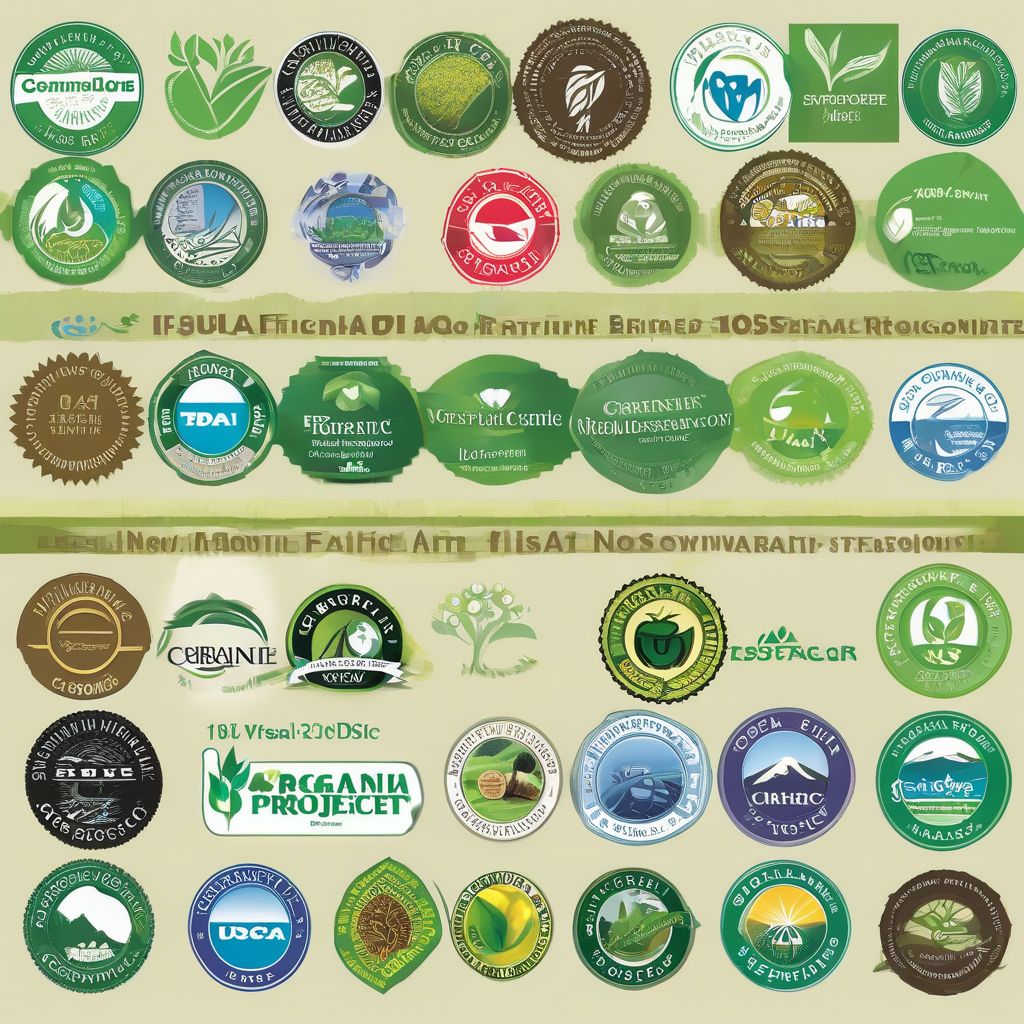Have you ever stood in the grocery aisle, overwhelmed by a wall of seemingly identical products, each claiming to be “sustainable,” “eco-friendly,” or “ethically sourced”? You’re not alone. As consumers, we’re increasingly aware of the impact our choices have on the planet and its people. We want to shop our values, but with so many labels and claims, it’s hard to know what’s genuine and what’s just clever marketing. That’s where certifications come in.
Decoding the Label Jungle: Why Certifications Matter
Think of certifications as trusted third-party endorsements. These organizations have rigorous standards and auditing processes, ensuring that products bearing their seal actually meet specific ethical and sustainability criteria. They cut through the noise and provide a level of transparency that’s crucial for informed decision-making.
But it’s not just about feeling good about our purchases. Certifications have tangible impacts:
- Protecting Workers’ Rights: Fairtrade, for example, guarantees fair wages and safe working conditions for farmers and workers in developing countries.
- Conserving the Environment: Look for certifications like the Forest Stewardship Council (FSC) for responsibly sourced wood and paper products, or the Marine Stewardship Council (MSC) for sustainable seafood.
- Promoting Animal Welfare: Certified Humane and Animal Welfare Approved are just two organizations working to ensure animals are raised without unnecessary suffering.
Navigating the World of Ethical Certifications
With hundreds of certifications out there, it can still feel overwhelming. Here’s a simplified approach:
1. Identify Your Priorities: What matters most to you?
- Social justice? Look for Fair Trade, SA 8000 (Social Accountability), or B Corp certifications.
- Environmental sustainability? Focus on certifications like Rainforest Alliance, Global Organic Textile Standard (GOTS), or Energy Star.
- Animal welfare? Seek out certifications like Certified Humane, Leaping Bunny (cruelty-free), or RSPCA Assured.
2. Start with Familiar Names:
Some certifications have broader recognition, making them easier to spot and understand. Look for:
- Fairtrade: Ensures fair prices, community development, and environmental protection for farmers and workers in developing countries.
- USDA Organic: Guarantees products are grown without synthetic pesticides, herbicides, or GMOs.
- Non-GMO Project Verified: Assures products are made without genetically modified organisms.
- Forest Stewardship Council (FSC): Promotes responsible forest management.
 Certification Logos
Certification Logos
3. Do Your Research:
Don’t hesitate to dig deeper! Reputable certification bodies have websites that provide detailed information about their standards, auditing processes, and the products they certify.
The Power of Your Purchase: Voting with Your Wallet
Every time we choose a certified ethical product, we send a powerful message to businesses that consumers care about more than just the bottom line. Our choices drive demand for more responsible practices, creating ripple effects throughout the supply chain.
Remember, no system is perfect. Certifications are constantly evolving, and some are more robust than others. But by understanding the landscape and making informed choices, we can leverage our purchasing power to build a more ethical and sustainable future.
Beyond the Label: Ethical Consumption as a Lifestyle
While certifications are invaluable tools, building an ethical lifestyle extends beyond simply checking for labels.
- Reduce Your Consumption: The most sustainable product is the one we don’t buy. Be mindful of your needs and prioritize quality over quantity.
- Support Local Businesses: Local businesses often have shorter supply chains and a greater commitment to ethical practices.
- Do Your Own Research: Stay informed about ethical issues within your preferred industries and support brands that align with your values.
[amazon bestseller=”ethical consumerism”]
Ready to Shop Your Values?
Embracing ethical consumption can feel empowering. By understanding the role of certifications and adopting conscious shopping habits, we can all make a difference. Remember, every purchase is a vote for the kind of world we want to live in. So, let’s choose wisely and build a future where ethical considerations are not the exception, but the norm.
